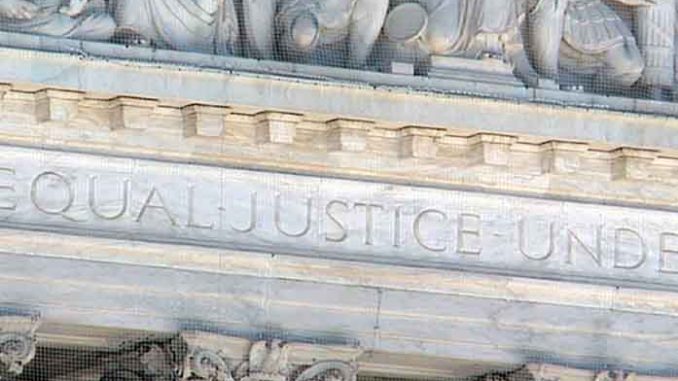
Two members of the Cochise County Board of Supervisors may not be protected from sanctions including removal from office if found to have violated the state’s open meeting laws when they appointed one of their own as Justice of the Peace for the Sierra Vista area in February 2019, according to a brief written by the Arizona Attorney General’s Office.
The attorney general’s office filed an amicus brief earlier this week in an appeal filed by David Welch, who lives in Precinct 5 covered by the Sierra Vista Justice Court. Welch contends supervisors Ann English and Peggy Judd should be removed for office and that then-supervisor Pat Call’s Feb. 12, 2019 appointment to justice of the peace should be voided due to violations of open meeting and conflict of interest laws.
The Arizona Court of Appeals has ordered the parties to appear in court on April 29 for oral arguments in Welch’s case. The proceeding will be held in Tucson and is open to the public, although small children at not permitted in the courtroom.
The amicus brief, also known as a friend of the court brief, notes that when interpreting Arizona’s open meeting law (OML), the language must be construed “in favor of open and public meetings.” It also addresses a March 14, 2019 vote undertaken by English and Judd to ratify their earlier vote appointing Call in the event the public notice of their February meeting was deficient.
The ratification statute which took effect in 1982 states any legal action transacted by a public body in violation of OML is null and void unless the public body ratifies the prior legal action within 30 days.
According to the brief, one of the duties of the attorney general is the interpretation of OML. It argues “the plain language of the statute” demonstrates that ratification only applies to the disputed or deficient legal action itself, and “does not eliminate liability for any underlying OML violation.”
Related article: Appeals Court Is Asked To Void Cochise County’s Appointment Of Justice Of The Peace
As a result, the attorney general’s position is that a public official may be subjected to sanctions if an OML violation is proven even if ratification occurred. Among the sanctions allowed by law are civil penalties, attorneys fees, and removal from office.
That position conflicts with a finding in Welch’s case by Judge Monica Stauffer of the Greenlee County Superior Court, who heard the case at the request of Cochise County court officials. Stauffer ruled last spring that the Cochise County board’s ratification vote “cured any issue of open meeting laws improprieties.”
But although the amicus brief calls Stauffer’s ruling “overbroad,” the attorney general’s office does not address the merits of Welch’s case itself. That is something which stood out to Cochise County Attorney Brian McIntyre when he studied the brief.
“Of particular note here, for the public, is that the Attorney General’s Office did not request nor advocate any particular result in the (Welch) case,” he said in a statement to Arizona Daily Independent. “Their lawyers only wanted to preserve OML action in cases even where a subsequent ratification meeting occurred.”
McIntyre also noted it is not uncommon for amicus briefs to be filed in cases where a group or agency has an interest in a particular issue in a case before the court.
Welch’s legal challenge to Call’s appointment is based in part on public records which show Call took part in discussion about how to fill the justice of the peace vacancy on the bench of the county’s busiest justice court. He advocated for not accepting applications from people interested in the position. Call’s salary nearly doubled from the appointment, which runs to the end of 2020.
English later admitted knowing Call wanted the position, although there was no public announcement or discussion of his interest before the vote.
Despite the amicus brief, Welch may have an uphill battle at the court of appeals, as Stauffer dismissed his complaint for a lack of standing. She ruled Welch had no basis to challenge the appointment, even though he lived in the precinct and had a criminal case pending in the Sierra Vista Justice Court at the time.
That issue of standing is not addressed by the Arizona Attorney General’s Office.
Cochise County is represented in the Welch case by Jim Jellison, who was contracted by McIntyre as his office was involved in providing legal advice to the county board during the vacancy process.
Jellison’s answer to Welch’s appeal notes there is no requirement for the board to accept applications or undertake a competitive process for filling the vacancy, and that all applicable state laws were followed. Whichever way the court of appeals rules, the affected party is expected to ask the Arizona Supreme Court to hear Welch’s case.
As a result, a resolution is not expected until late this year, about the time Call’s term expires
Current board chairman Tom Borer was appointed by English and Judd to serve out Call’s unexpired term. He was not involved in the appointment votes.
